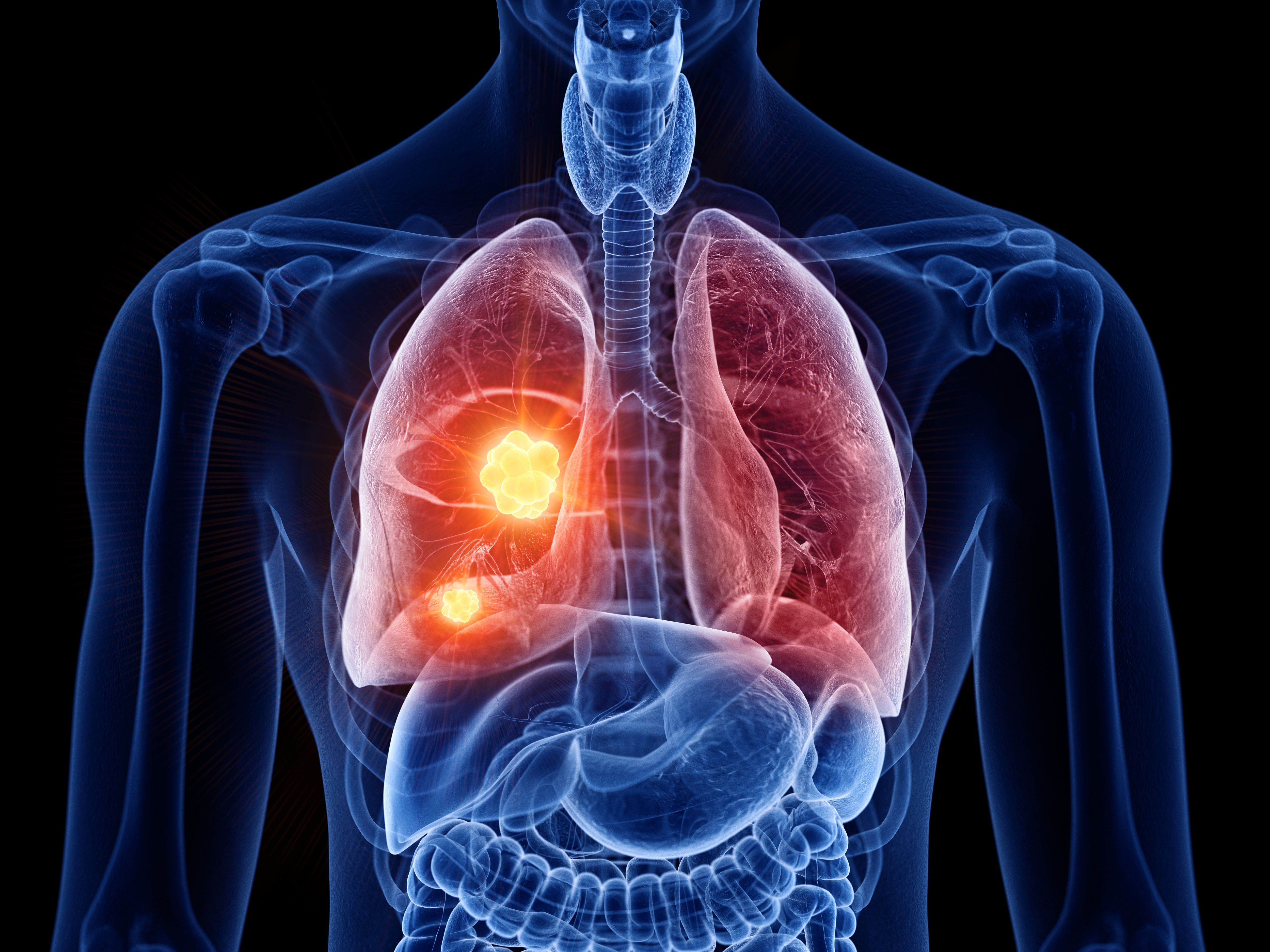- Center on Health Equity & Access
- Clinical
- Health Care Cost
- Health Care Delivery
- Insurance
- Policy
- Technology
- Value-Based Care
Measuring the Magnitude of Systemic Inflammatory Response in NSCLC
Measures of systemic inflammation used for the liver, including C-reactive protein-albumin ratio and modified Glasgow prognostic score, demonstrated prognostic value in non–small cell lung cancer (NSCLC).
C-reactive protein-albumin ratio (CAR) and modified Glasgow prognostic score (mGPS), which are liver-based measures of systemic inflammation, were reliable for evaluating prognosis in patients with non-small cell lung cancer (NSCLC) and in measuring systemic inflammatory response (SIR), according to a study published in Cancer Medicine.1
Approximately 80% to 85% of lung cancers are defined as NSCLC,2 with most patients with NSCLC having locally advanced or metastatic lung cancer, leading to poor prognosis. The Eastern Cooperative Oncology Group performance status (ECOG-PS) is a self-reported assessment used in prognosis of patients with advanced cancer but is subject to bias. Biomarkers of inflammation can be used to evaluate treatment effectiveness and outcomes. The current study aimed to assess what the relationship is between systemic inflammatory composite ratios/cumulative scores, magnitude of SIR, and survival in patients with good performance status in advanced, inoperable NSCLC.
Patients who had received radiotherapy at Beatson Oncology Center in Glasgow between May 2010 and 2016 were considered for the study. Patients who had small cell lung cancer that was histologically confirmed or who had undergone radiotherapy were excluded. Patients who had been assessed for SIR and had good performance status on the ECOG-PS were included. Overall survival from the date that the patient started palliative radiotherapy acted as the primary end point. Electronic health records were used to identify the date of death.
Liver-based measures of systemic inflammation can be used in determining the prognosis for a patient with NSCLC | Image credit: Sebastian Kaulitzki - stock.adobe.com

Systemic inflammation was measured using hematological and biochemical results of blood samples. Neutrophil-lymphocyte ratio (NLR), lymphocyte-monoctye ratio (LMR), and platelet-lymphocyte ratio (PLR) were all calculated along with CAR; mGPS was constructed using threshold values. Demographic details from all patients were also collected.
There were 479 patients included in this study, of which 48% were men and 70% were aged 65 years or older. Adenocarcinoma was found in 40% of patients and squamous cell carcinoma was found in 41%; 56% of patients had metastatic disease.
The various ratios and scores had a similar prevalence of systemic inflammation (NLR > 3, 68%; LMR < 2.4, 65%; PLR > 150, 70%; CAR > 0.20, 83%; mGPS ≥ 1, 75%). A median CRP concentration of more than 10m mg/L was found in NLR of less than 3, LMR of 2.4 or more, and PLR of 150 or less. Overall survival was significantly associated with all of NLR, LMR, PLR, CAR, and mGPS.
A univariate analysis found that CAR was significantly associated with only the histological subtype (P = .048) and mGPS was significantly associated with chemotherapy (P = .019) and ECOG-PS (P = .013). A univariate analysis also found that CAR of more than 0.40 (HR, 1.64; 95% CI, 1.25-2.17) and mGPS 2 (HR, 1.62; 95% CI, 1.27-2.07) were significantly associated with overall survival.
There were some limitations to this study. The study was conducted at a single center and was retrospective in nature, which could introduce sample bias. The specificity if myeloid measures when using them to quantify the magnitude of SIR was called into question and therefore only CAR and mGPS were evaluated further. The patients were not likely to have received immunotherapy or targeted therapies due to all patients being treated from 2010 to 2016. The cohort also only included patients with good performance status.
The researchers concluded that the liver-based measures of CAR and mGPS were reliable in assessing SIR when quantifying its magnitude. Prognostic scores based on systemic inflammation should include these measures in the future.
References
- McGovern J, O’Rourke F, Will S, et al. The prevalence and prognostic value of systemic inflammation in good performance status patients with advanced, inoperable non-small cell lung cancer receiving palliative radiotherapy: comparison of composite ratio cumulative scores. Cancer Medicine. 2024;13:e70139. doi:10.1002/cam4.70139
- Key statistics for lung cancer. American Cancer Society. Updated January 29, 2024. Accessed August 27, 2024. https://www.cancer.org/cancer/types/lung-cancer/about/key-statistics.html
